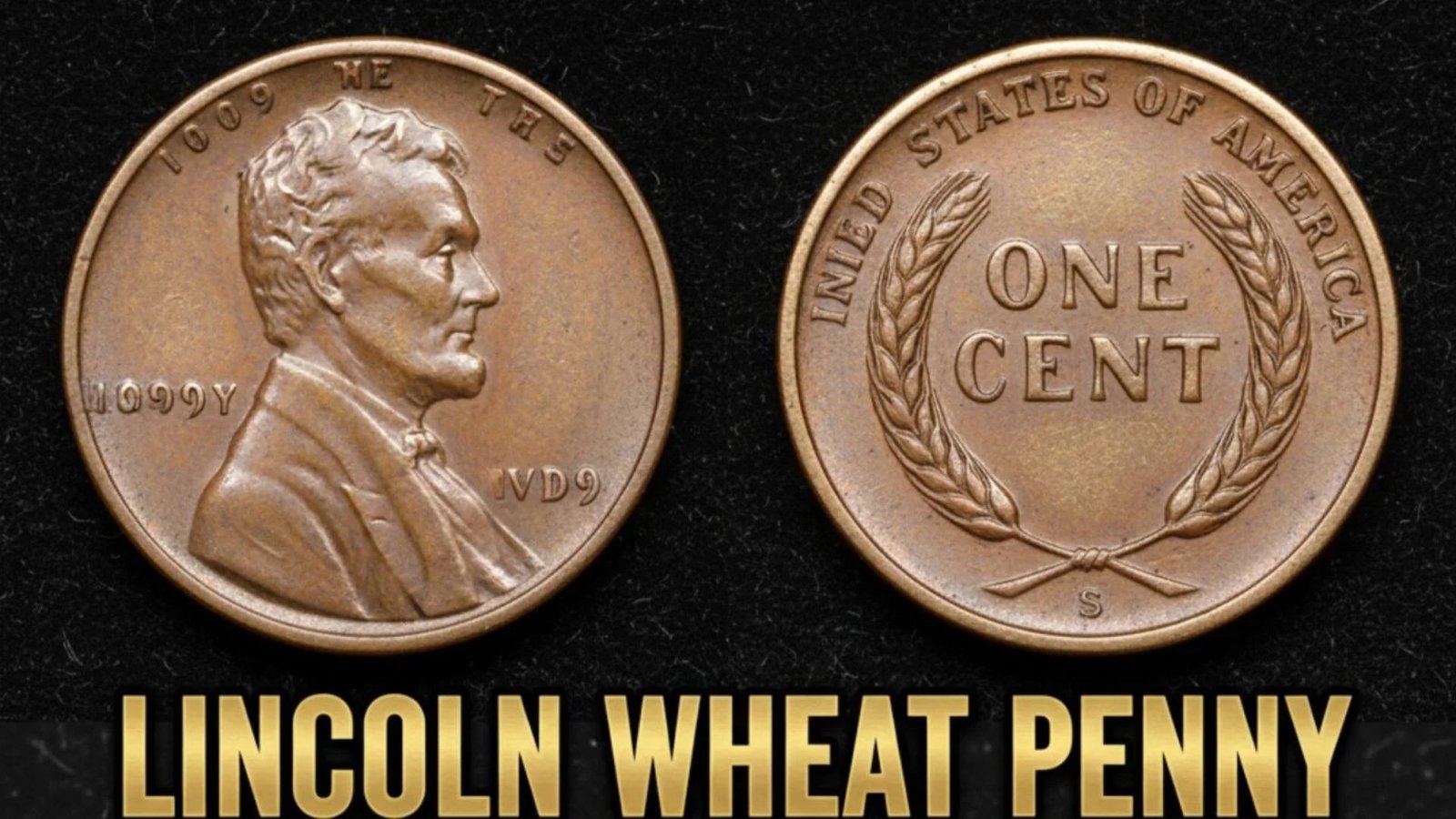Imagine digging through your couch cushions or an old jar of coins and pulling out a tiny copper treasure worth $10,000. It’s not a dream. The rare Lincoln Wheat Penny is still floating around in everyday change, waiting for sharp-eyed collectors to spot it. This isn’t hype – real people have cashed in big. In this guide, we break it down in plain English, show exactly what to hunt for, and give you a cheat-sheet table so you can start your own penny fortune hunt today.
What Is the Lincoln Wheat Penny?
The Lincoln Wheat Penny (also called the Wheat Cent) ran from 1909 to 1958. Flip it over and you’ll see two wheat stalks hugging the words “ONE CENT.” Abraham Lincoln’s face is on the front. The U.S. Mint made billions, so most are worth just face value. But a handful of mistakes and rare dates slipped through – and those are the $10K jackpots.
Why Some Are Worth a Fortune
- Minting errors – double stamps, off-center strikes, wrong metal.
- Low mintage years – fewer coins made = higher value.
- Perfect condition – no scratches, original shine.
Top Lincoln Wheat Penny Errors That Pay $10,000+
Here’s the treasure map. Grab a magnifying glass and check every pre-1959 penny.
| Year & Mint | Key Error / Rarity | Red Flags to Spot | Recent Sale Price |
|---|---|---|---|
| 1909-S VDB | Only 484,000 made; “VDB” initials on reverse | Tiny “VDB” under wheat stalks | $10,000+ (MS65) |
| 1914-D | Just 1.2 million minted | “D” mint mark under date | $8,000–$15,000 |
| 1922 No D | Mint mark missing (Denver) | Plain under date, no “D” | $12,000+ |
| 1931-S | Only 866,000 struck | Small “S” under date | $9,500 |
| 1943 Bronze | Wartime steel mistake – copper planchet used | Copper color, not silver | $200,000+ (yes, really) |
| 1944 Steel | Opposite error – steel leftover | Silver color in 1944 | $7,000–$10,000 |
| 1955 Double Die | Letters/numbers doubled | Blurry “LIBERTY” & date | $1,000–$25,000 |
MS65 = “Mint State 65” – near perfect. Lower grades still fetch hundreds.
Quick Grading Cheat
- Circulated (worn) – $50–$500
- Almost Uncirculated (light wear) – $1,000–$5,000
- Red Mint State (shiny copper) – $10K+
How to Hunt Lincoln Wheat Penny Gold in Everyday Change
- Ask for penny rolls at your bank – $25 boxes are best.
- Hit flea markets & estate sales – buy jars of “junk” wheat cents for pennies each.
- Use a 10x loupe – check date, mint mark (“D” or “S”), and for doubling.
- Weigh suspicious 1943 pennies – bronze = 3.11 grams; steel = 2.7 grams.
- Store finds in plastic flips – don’t clean! Cleaning kills value.
Real Stories: From Pocket Change to Payday
- Ohio teacher (2022) – Found a 1922 No D in granddad’s cigar box → $18,000 at auction.
- Florida retiree (2024) – Cashed a 1943 bronze discovered in a $2 roll → $204,000.
- eBay flipper – Bought 5,000 wheat cents for $50, pulled a 1914-D → $11,200 profit.
Common Mistakes That Cost You Thousands
- Cleaning with chemicals – turns $10K coin into $10.
- Ignoring “S” or “D” marks – 90% of value hides there.
- Selling to pawn shops – they pay 10% of true worth.
Where to Sell Your Lincoln Wheat Penny Jackpot
| Option | Pros | Cons |
|---|---|---|
| Heritage Auctions | Highest prices, global buyers | 15–20% fee |
| eBay (with COA) | Fast cash | Risk of lowball offers |
| Local coin show | Face-to-face trust | Travel required |
| PCGS/NGC submission | Official grade boosts value | $20–$50 per coin |

